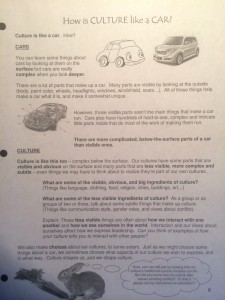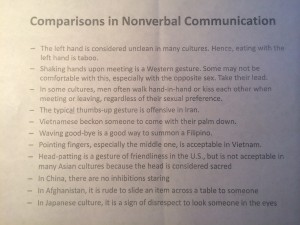Over the summer, I was granted the wonderful opportunity to intern at Americana Community Center (ACC) in Louisville, Kentucky. ACC is an organization that specializes in refugee and immigrant services, with programs such as GED and English classes, a sewing class for adult women, after school kids programs, citizenship classes, and taxes and computer help. Louisville is a commonly chosen area for refugee resettlement, and the services that ACC provides the city and its refugee community is invaluable. The Youth Program, which is where I spent my time, is particularly important. My primary role at the Center was to teach art classes to middle and high school students.
My first day on the job, I messed up. I messed up in a way that I never expected. I pride myself on being a socially aware Religion major, where a major part of what I’ve learned is to see and confront privilege (including and maybe especially my own). On the first day, as the students filtered in, the other interns and I were doing a get-to-know-you exercise that involved moving around the room and switching seats. While one of the other interns was explaining how the game worked, I noticed two girls on the edge of the room murmuring to each other. Thinking to fulfill my role as one of the persons in charge, I confidently decided to discreetly quiet them so that it would not be distracting to the other kids. As the murmuring continued, as well as my efforts to shush them, I became extremely frustrated. I’m in charge here, I thought to myself. Why won’t they listen? Then, I started to listen to what they were actually saying to each other—and it hit me. These girls weren’t gossiping like I expected of two middle school aged girls; one of the girls was translating what was being said for the other.
Any time you are working with kids, there are always moments of both joy and frustration, amplified in this case by the language barrier that some of the children and I experienced. Most recent statistics for ACC note that there are families coming from 99 different countries all seeking services in some form or another, and while I consider myself a culturally conscious person given my background in religious studies, it was impossible to remain fully culturally competent in a way that catered to each and every child. Our ACC training in the area consisted of a brief training session and a few handouts (as examples, the two images below).
I spent my time at ACC very self-conscious of my own position and point of view (me, being a white, middle class, 20-something college student), and I came to understand the full extent to which my Religion major influences the way I act in multicultural contexts. I was very careful, perhaps overly so, to be sure not to offend any of the children I was working with (especially after shushing a translating student on my very first day) and to be understanding of the hardships many of them had faced as refugees or first-generation Americans. My position as an intern, an authority figure, and my background, all became very apparent to me in this context. We all know the horror stories of scholars on anthropological missions in the world, who, quite frankly, simply did not understand their position in the grand scheme of things, or used it to further racist, eurocentric aims–you know the ones I mean: middle-aged, white, Euro-American men who traveled around “discovering” people and who used words like “orient” and “exotic.” Studying scholarly works over the past three years (which included the mistakes and assumptions that many an ethnographer and scholar before me has made) fostered a sense of caution that I myself didn’t even realize until being thrown into an environment where that sort of caution served me well.
Navigating the changing currents and whims of middle and high school aged children, new to the cultural landscape of America, simply would not have been possible without the knowledge and sensitivity I have gleaned over the years as a religion major. Yes, I made some embarrassing mistakes while at ACC, but also learned valuable lessons in the recognition of my own position, and the difference between recognizing this in theory (sitting in a classroom critiquing others and myself) and in practice (being immersed in the lives of children of variegated cultures and backgrounds).


